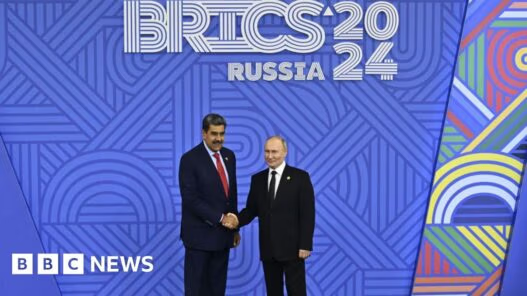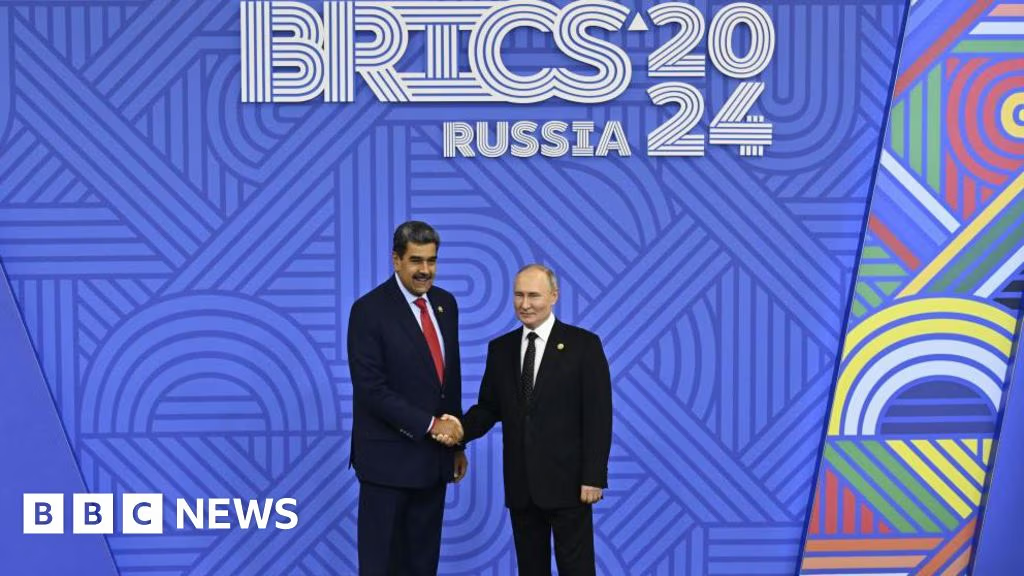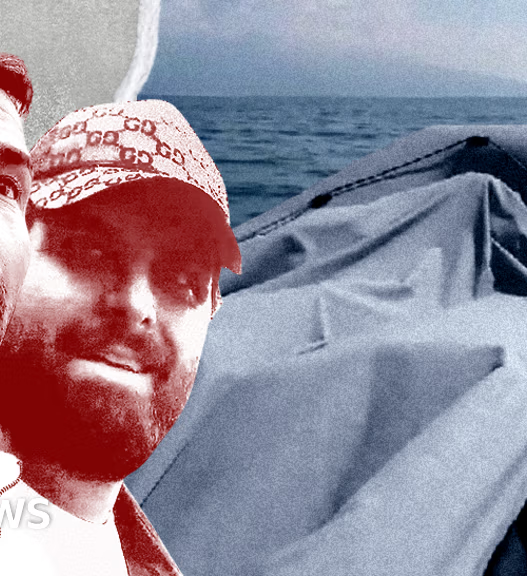 Getty Images
Getty ImagesVenezuela has criticised Brazil’s decision to veto its admission to the Brics group of emerging economies.
Venezuela’s foreign ministry described the move, which came at the group’s summit in Russia attended by more than 20 heads of state, as an “immoral aggression”.
Relations between the two left-wing governments have worsened since July’s contested presidential election in Venezuela. President Nicolás Maduro said he had secured re-election, despite evidence that the opposition’s Edmundo González won by a landslide.
Brazilian President Luiz Inácio Lula da Silva initially supported Maduro, but eventually said he would not accept the official results until a breakdown of the vote was released.
Multiple foreign governments have said they believe the opposition won the election in Venezuela, but stopped short of recognising González as the president.
“The Brazilian foreign ministry has decided to maintain the veto that [former Brazilian president] Jair Bolsonaro has applied against Venezuela for years, reproducing the hatred, exclusion and intolerance promoted from the centres of power in the West,” the Venezuelan foreign ministry said in a statement.
“The Venezuelan people feel indignation and shame at this inexplicable and immoral aggression,” it added.
Venezuela had lobbied hard to join the Brics, with Maduro even making a surprise appearance at the summit in the city of Kazan and declaring that his country was “part of the Brics family”.
Russian President Vladimir Putin, who hosted the summit, said he agreed with Venezuela’s position, but added that it would only be able to join the Brics if there was a consensus in favour among its members.
“We know Brazil’s position. We don’t agree, Venezuela is fighting for its survival,” Putin said at a news conference on Thursday.
He said he discussed the issue with Lula when they spoke on the phone this week. Lula was scheduled to travel to Russia for the summit, but cancelled the trip after injuring his head in an accident at home on Saturday.
Putin added that he would work to help the two South American neighbours mend relations.
The Brics began as a grouping that unites Brazil with Russia, India, China and South Africa. Last year, however, the original members agreed to admit a number of new joiners, including Egypt, Ethiopia, Iran and the United Arab Emirates.
Lula is a passionate advocate of the Brics as a means of reforming global governance and giving a greater voice to the developing world.
He has criticised the “paralysis” of global institutions, while praising the expansion of the Brics as strengthening the fight for more diverse perspectives.
But other observers retort that the Brics are themselves paralysed by their own internal contradictions, with Russia at war in Ukraine, while China and India have their own mutual squabbles.
The latest Brics summit in Kazan was seen as an opportunity for President Putin to demonstrate that attempts to isolate Russia over its invasion of Ukraine had failed.
But in his attempts to strengthen the grouping as a counterweight to the Western-led world, he has also exposed other divisions, leaving relations between Brasília and Caracas at their lowest ebb since Lula’s re-election two years ago.
This article was originally published at www.bbc.com
















